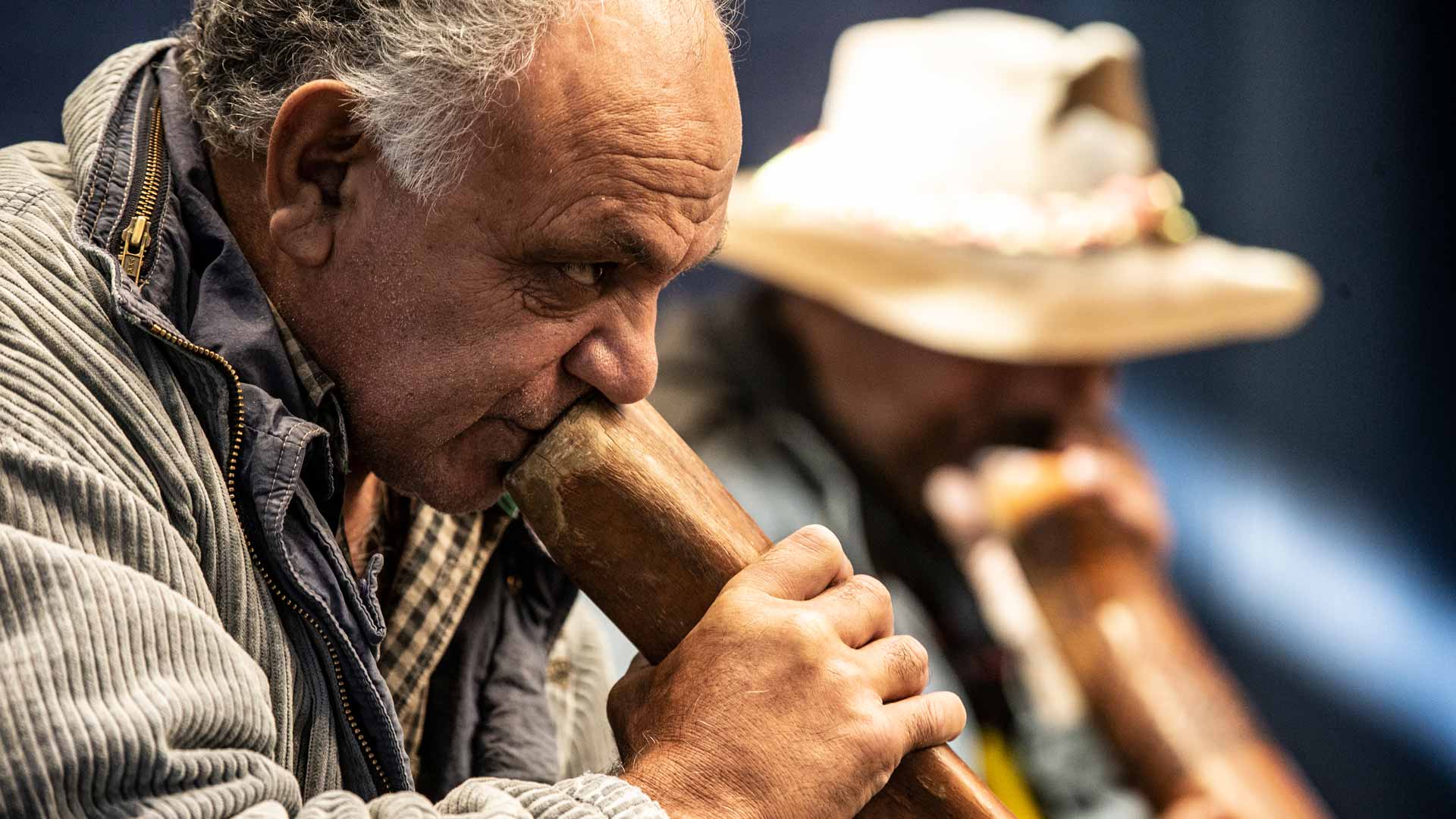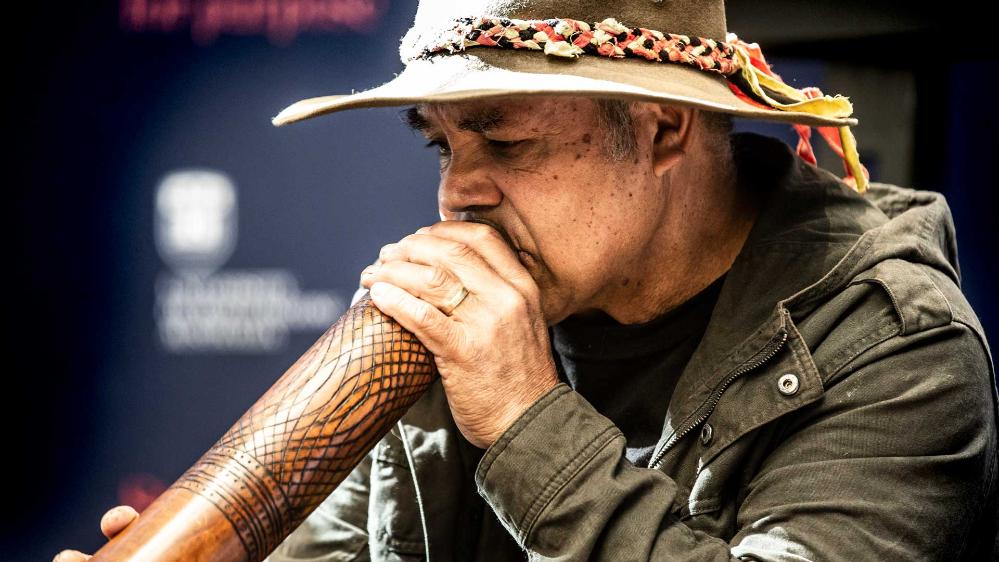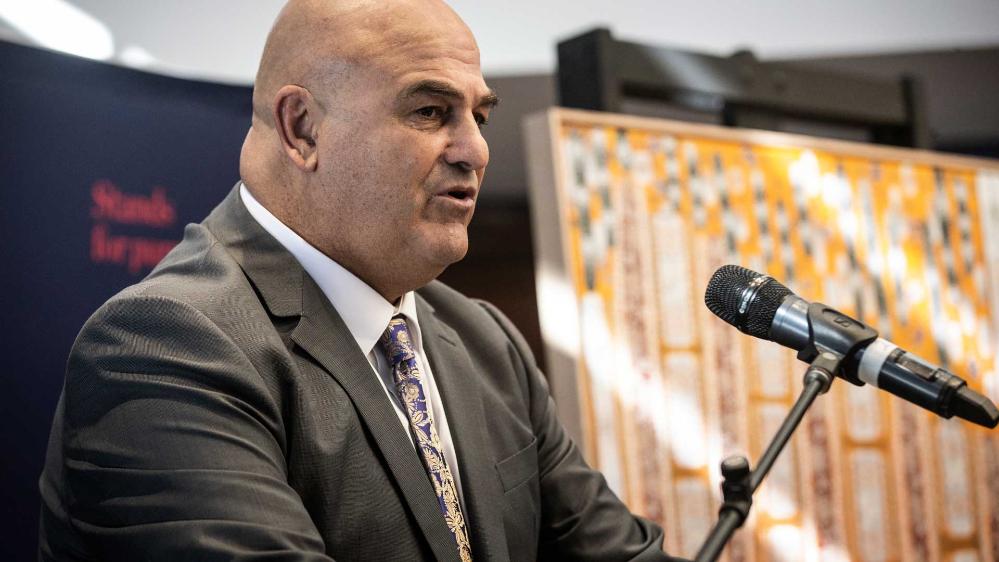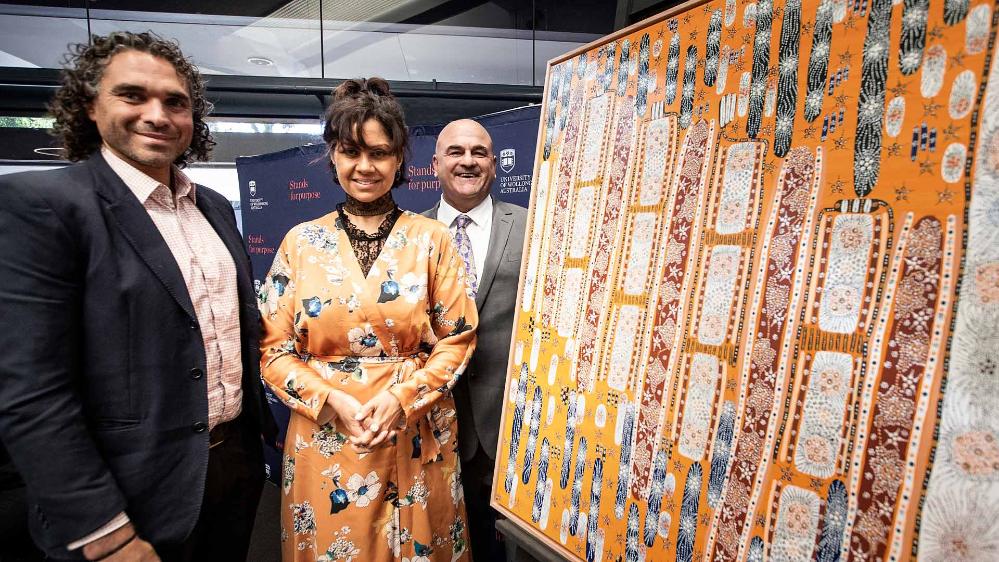New framework reaffirms commitment to greater Indigenous outcomes and connection with community

The University of Wollongong launched its inaugural Reconciliation Action Plan today (Tuesday 9 July), with the aim of building greater connections with the Indigenous community and improving outcomes for Aboriginal and Torres Strait Islander peoples.
Released during NAIDOC Week, the Reconciliation Action Plan (RAP) is a blueprint that places Indigenous knowledges and identity at the heart of the University’s academic and cultural fabric.
It was officially launched during an event at University Hall, which also celebrated NAIDOC Week.
This year’s NAIDOW Week theme is “Voice. Treaty. Truth.”, which acknowledges that Aboriginal and Torres Strait Islander peoples have always strived for an enhanced role in decision making in Australia’s democracy.

Professor Paul Chandler, Pro-Vice Chancellor (Inclusion and Outreach), spearheaded the Reconciliation Action Plan and said he wanted a framework that was meaningful.
“From the outset, the inaugural Reconciliation Action Plan was always going to be unique, innovative, and set the tone for other RAPs across the nation. We had no constraints placed on it. We as Aboriginal people were empowered to ask questions, interview stakeholders, consult communities, research, share stories, and speak extensively with Elders and Knowledge Holders,” Professor Chandler said.
“The themes, hopes and challenges arising from the University tended to align with the feedback we received from the communities we engaged. People wanted a RAP that went beyond pure tokenism and window dressing to a framework that displayed a real commitment to genuine Reconciliation.”

Professor Chandler was the first Aboriginal person to be named Dean (of UOW’s then Faculty of Education) at any university in Australia. He said he was proud to lead the Reconciliation Action Plan and help bring Indigenous knowledges further into the higher education system.
“Before any title or award was bestowed on me through any Australian and international university, I was and remain to this day a proud Bidjigal man, a saltwater person from eastern Sydney,” he said. “I am one of the very few people lucky enough to have survived and thrived in two worlds, my traditional Aboriginal world and my University world.”
Vice-Chancellor, Professor Paul Wellings CBE, said he was thrilled to help launch the plan, which aims to inspire institutional, systemic and cultural change through a process of learning, exchange and growth.
“The University has built a solid foundation to improve access and outcomes, and the RAP challenges us to broaden our understanding of Reconciliation and what that means for our Aboriginal and Torres Strait Islander students, staff and communities,” Professor Wellings said.
“The plan will establish UOW as an organisation where Aboriginal and Torres Strait Islander knowledges, cultures and values are respected and are reflected in our teachings and the attributes of all graduates. We will create new opportunities for Aboriginal and Torres Strait Islander students, staff, communities and businesses to connect, participate and grow through genuine and productive relationships with UOW.
“We are passionate about building a more productive and inclusive culture, encouraging our staff, students, and alumni to extend their understanding of and engagement with Aboriginal and Torres Strait Islander peoples, communities and cultures.”

For the past two years, UOW has been working to integrate Aboriginal knowledges into the academic curriculum through the Jindaola program.
Developed by UOW’s Academic Development and Recognition team in consultation with Aboriginal Elders and local Knowledge Holders, Jindaola builds relationships between disciplinary knowledges and local Aboriginal knowledges. It allows Aboriginal stories, experiences, ways, and perspectives to be embedded within UOW curriculum.
The University acknowledges that its campuses and centres are located on the traditional lands of the Wadi Wadi, Wandandian, Walbunga, Djirrangani, Gandangara and Gadigal peoples.
These groups share kinship across several Nations and language groups including Yuin, Dharawal and Eora, and are recognised as the Traditional Owners and Custodians of these lands.
NAIDOC Week runs from Sunday 7 July to Sunday 14 July.








